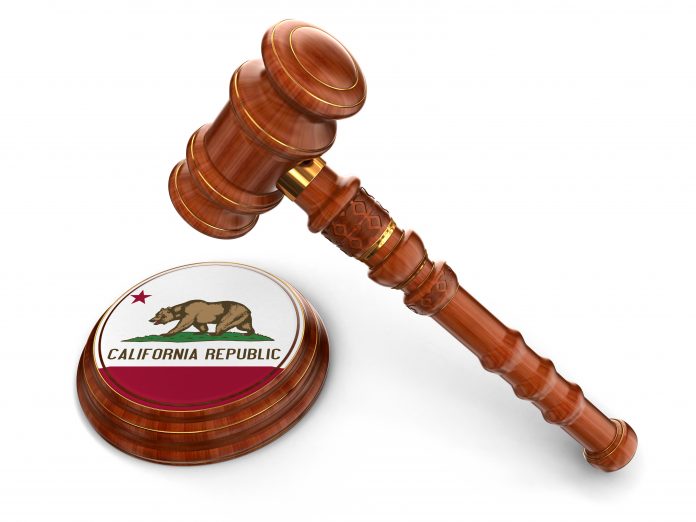Despite an arbitration agreement with a class waiver, the California Supreme Court recently ruled a right to sue in an “independent contractor” case highly applicable to adult nightclub owners.
(Note: This story appears in the September 2023 issue of ED Magazine)
In an important case for adult nightclub operators, the California Supreme Court recently ruled that a large group of aggrieved Uber drivers can pursue their 2019 Private Attorney General Act (“PAGA”) lawsuit alleging they weren’t paid work-related expenses while classified as Independent Contractors, despite the Plaintiff, Erik Adolph, signing an Arbitration Agreement that included a valid class waiver. The court upended the June 2022 United States Supreme Court decision Viking River Cruises, Inc. vs. Moriana, which concluded that a group of aggrieved employees could not jointly pursue a PAGA action if the named plaintiff executed a valid Arbitration Agreement with a class waiver.
The California Supreme Court relied upon its 2014 Iskanian vs. CLS Transportation Los Angeles ruling, which held that an arbitration agreement requiring an employee, as a condition of employment, to give up their right to bring a representative PAGA claim is contrary to public policy and not preempted by the Federal Arbitration Act. Since 2014, Plaintiff’s attorneys have used PAGA as a weapon to get around Arbitration Agreements and add value to wage and hour type claims. The Adolph decision essentially preserves the scope of PAGA established through Iskanian, which allows one Plaintiff to represent a group of aggrieved employees regardless of whether or not they signed an Arbitration Agreement with a class waiver.
For those unfamiliar with PAGA, the California statute authorizes an aggrieved employee to file a lawsuit to recover civil penalties for themselves and other potentially aggrieved employees. Suppose the employee(s) won the PAGA claim. In that case, the court would order the employer to pay civil penalties of up to $100 for an initial violation and up to $200 for each successive violation. 75% of these civil penalties go to the state, 25% to the employee. The plaintiff’s attorney is entitled to reimbursement of reasonable fees and costs. Before filing a PAGA action, the employee must notify the LWDA of the parties and alleged violations. The LWDA then has 60 days to decide whether to pursue the claim. If the LWDA doesn’t respond to the letter, the aggrieved employee and their attorney can seek to represent the plaintiff and other aggrieved employees seeking penalties by filing a lawsuit in California’s Superior Court. The LWDA rarely, if ever, decides to pursue the claim leaving it to the private attorney and their client to file a lawsuit.
The bad news is PAGA claims can be very expensive because the penalties are per violation, not per employee. No insurance will cover these types of claims.
The good news is that the PAGA statute of limitations is one year, much shorter than the four-year California Business and Professions Code § 17200 statute often used to extend the statute of limitations in traditional class-action cases involving failure to pay wages, etc. PAGA is also limited to collecting penalties and not actual damages incurred by the aggrieved employees. Finally, the penalties are up to $100 for the first violation and an up to $200 for the second – the court ultimately decides the penalty amount based on discretionary factors, and it could be significantly less than the $100/$200 maximum.
Because the Adolph matter involves an issue of federal law (i.e., violation of the Federal Arbitration Act), Uber can seek to appeal the decision to the U.S. Supreme Court, but for the time being, employers should do the following:
1. Don’t ignore a PAGA letter – immediately provide it to your attorney to see if there are any violations you can cure before the expiration of the 60-day notice period;
2. Review your policies and procedures to ensure they’re compliant with the California Labor Code; and
3. Have an attorney draft or review your current arbitration agreement to ensure it’s compliant and contains a valid class waiver so that you can avoid the class action that often goes hand in hand with a PAGA complaint.
For California adult nightclub employers, you should not be classifying dancers as independent contractors and thus leave yourself susceptible to PAGA actions. To this end, exotic dance employers are no different than other employers — track hours, comply with meal and rest period laws, have clear policies and procedures and pay according to the applicable minimum wage rate.
– Devon Lyon
For California adult nightclub employers, you should not be classifying dancers as independent contractors and thus leave yourself susceptible to PAGA actions. To this end, exotic dance employers are no different than other employers — track hours, comply with meal and rest period laws, have clear policies and procedures and pay according to the applicable minimum wage rate (remembering some cities and counties have higher minimum wage rates than the state). In California, many clubs pay out dancers daily, then issue wage statements every week or two. If this is your practice, ensure you maintain records of the taxes withheld, commissions paid and tips received. That information must be accurately reflected in the paycheck stub to avoid an inaccurate wage statement claim (which can also be subject to a PAGA complaint).
Be sure to attend the EXPO Legal Panel for more discussion on the Uber California Supreme Court decision and other important legal issues for your club.
Note: This article summarizes complex legal issues and is not intended as an exhaustive analysis or specific legal advice. Laws differ by state and municipality. The opinions expressed by attorney Devon M. Lyon are her own and not representative of ED Publications. Club operators and others are urged to consult their attorneys and accountants for specific advice on how these issues may impact their businesses and what measures to consider. ED Publications does not guarantee the accuracy of the information provided.
Devon M. Lyon has been an attorney for 20+ years is the owner and lead attorney at the labor and employment law firm, Lyon Legal, P.C. Contact Devon M. Lyon at (562) 216-7382 or email d.lyon@lyon-legal.com.





























